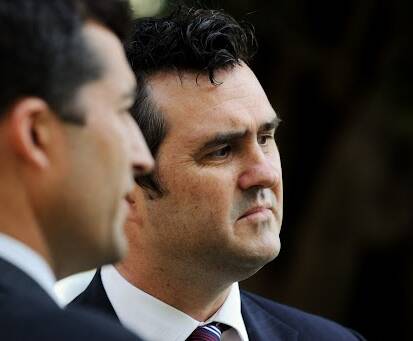
SCOTT Neylon's name was used in an under-the-radar ClubsNSW operation that appeared designed to manipulate public opinion against stricter poker machine laws.
At the same time, his close mate Jeremy Bath was steering the lobby group's campaign against the proposed reforms.
An ongoing Newcastle Herald investigation can reveal that pro-clubs comments posted on former NSW premier Bob Carr's blog Thoughtlines, under the names Scott Neylon and Austin Yule, came from inside ClubsNSW.
The matching IP address on both posts was assigned to ClubsNSW at the time, and can be traced to the Sydney headquarters of the powerful clubs' lobby group.
An expert says the April 2011 online comments bear the hallmarks of an "astroturfing" campaign - or the use of artificial grassroots support to create an illusion of widespread backing for an issue.
Astroturfing can take many forms, but at its most basic the process involves powerful interest groups, or people, masquerading as street-level, or community, support for a political agenda, person or product.
The public relations, or spin-doctor, trick is based on the premise that persuasion works best when it is invisible.
Ed Coper, executive director of the Centre for Impact Communications, which studies online disinformation, said astroturfing had a long history and was designed to deceive by misrepresenting community opinion.
"Your typical astroturfing campaign now will centre around specific community groups that people might set up to be against a particular issue or project," Mr Coper said.
"They pretend to be outraged local citizens, when it's actually coming from a special interest group that is involved."
Email address links
The Newcastle Herald can also reveal the email addresses supplied to make the posts on Mr Carr's blog, which appeared a minute apart just after lunch on a Thursday afternoon, have links to Mr Bath and former ClubsNSW head Anthony Ball.
The posts were made at a time when Mr Bath, now City of Newcastle CEO, was working as media relations manager for ClubsNSW, steering an aggressive public relations campaign, which successfully crushed then prime minister Julia Gillard's attempts to introduce betting limits on poker machines.
The first post, made on April 14 at 1.58pm under the name Scott Neylon, provided an email address with the prefix 'InkermanStreet'.
Mr Bath's wife owned a property in Inkerman Street, Parramatta, at the time.
The second post was made a minute later from the same ClubsNSW IP address under the name Austin Yule and provided an email address with the prefix 'TheBalls17', which is linked to Mr Ball's wife. The couple also have a son named Austin.
Mr Ball, who left ClubsNSW in 2020 and now works for gaming company Aristocrat, did not respond to requests for comment.
Mr Bath also declined this week to answer the Herald's questions.
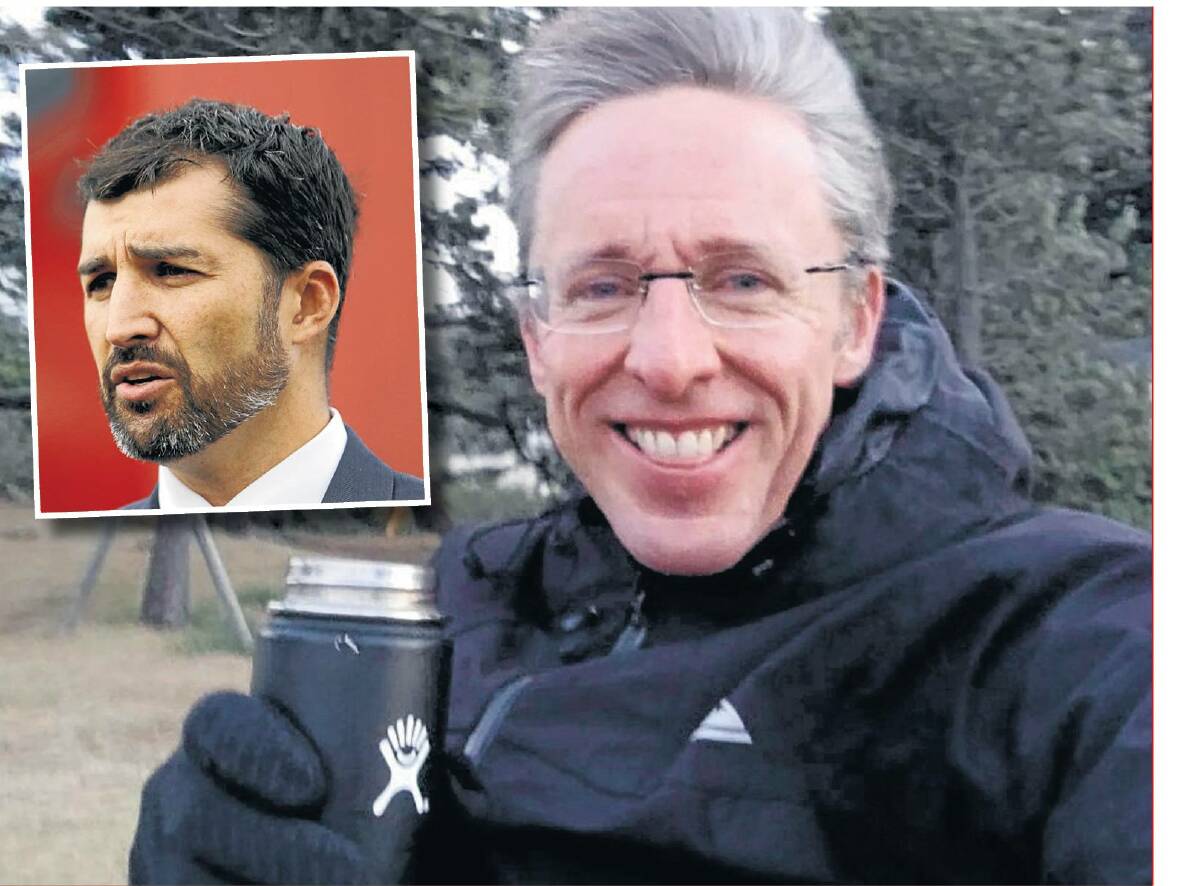
A ClubsNSW spokesman said the organisation "does not condone employees using pseudonyms in online forums".
He said ClubsNSW was not aware of any instances where staff had done this.
The latest revelations in the misleading letter-writing controversy have raised further questions about the authenticity of dozens of other correspondence linked to the name Scott Neylon dating back to at least 2010.
The Herald has uncovered a host of letters to the editor and online comments authored under the names Scott Neylon, Austin Yule and Jason Sivo, submitted to the Newcastle Herald, Sydney Morning Herald, Illawarra Mercury, Crikey and Mr Carr's blog over the past 13 years.
The same mobile phone number was used to submit letters under the names Scott Neylon and Jason Sivo, and the same IP address links Scott Neylon and Austin Yule.
Despite extensive searches, the Herald has been unable to find any trace of Jason Sivo or Austin Yule.
As previously reported, the letters mislead by using a maze of inconsistencies, some of them plainly wrong.
The writer, or writers, distort reality and twist the truth to support arguments being made, which begs the question: Who is pulling the strings?
Instead of supporting a single cause or political agenda, time and again, the correspondence lends support or rebukes critics of Mr Bath, or the organisation he works for.
When Mr Bath changed jobs, the subject of the letters changed too.
Mr Coper said the misrepresentation in the letters was "clearly inauthentic behaviour".
He said the misleading nature of the correspondence meant it was "sailing very close to the wind" in terms of trying to manipulate projects or issues being dealt with by City of Newcastle, and Mr Bath's previous employers.
This was particularly concerning because the writer was pretending to be someone they are not, he said.
Influencing opinion
The misleading opinions can counteract real opinions or simply drown them out.
Mr Coper said the effect was to mislead people "in Newcastle by misrepresenting community opinion, which is a serious charge".
"And that happens because letters to the editor and other sorts of online activities, the tools used in astroturfing, can actually be quite influential in creating community opinion. It can be very powerful and that's why people manufacture it."
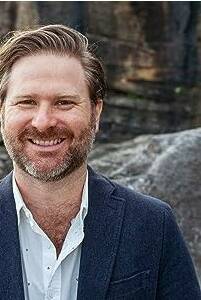
Mr Neylon and Mr Bath have been close friends since before university.
In an emailed response last month, Mr Neylon said Mr Bath had never asked him to write letters and the council boss has denied any involvement in the letter-writing campaign.
"There are many national and local issues I feel passionately about," Mr Neylon wrote from the main email provided in his letter submissions.
"I have always enjoyed contributing to debates, sticking up for my friends, and having my opinions published due to my apparent insight and deft writing skills."
Despite initially agreeing to speak with the Herald, Mr Neylon only communicates via email and regularly side-steps questions he doesn't want to answer.
The 48-year-old has offered no explanation for why he purports to be everything from a father of a teenager, to a Hunter-based grandfather who spends his time at City of Newcastle pools, when in reality he lives in Japan and has no children.
The long-term expat was also silent on questions about the posts on Mr Carr's blog.
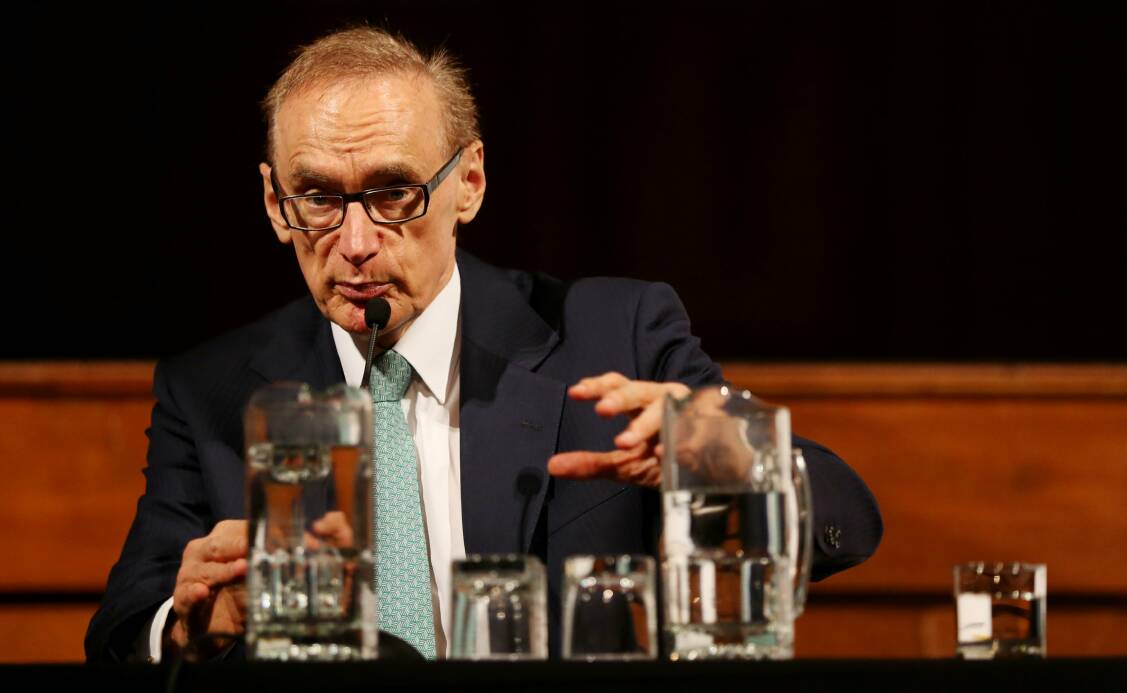
Mr Neylon dismissed speculation about why he often misspells his own surname as Neylan, putting it down to "fat fingers" typing on a mobile phone. But the Herald tested the hypothesis and found it did not seem likely due to the positioning of the letters on a smartphone keyboard.
In his letters, Mr Neylon claims to have lived in eight different places across NSW, from Nowra on the south coast, to five suburbs across the Hunter and Narrabri in the north west.
But his own website states he lives "permanently" in Japan with his Japanese wife.
A document obtained by the Herald detailing his work history shows he has been teaching English there since at least 1998.
Mr Coper said he would not be surprised if the Neylon, Sivo and Yule campaign extends further to social media, which can be difficult to track due to the ease of setting up fake profiles.
"Letters to the editor is a very old tactic," he said.
"What people are doing now, and we've been doing a lot of work looking at this around the Voice campaign, where people are starting hundreds, if not thousands, of fake social media accounts and having a opinion through these accounts about the Voice campaign.
"That's simply a very modern version of the letters to the editor campaign."
Ms Hornery, who has been embroiled in a bitter dispute with City of Newcastle for months over the future of the council's inland pools, and the subject of a series of angry Neylon letters at the same time, wrote to the Minister for Local Government, Ron Hoenig, last month asking for an investigation into the matter.
This prompted Mr Hoenig to write to Newcastle lord mayor Nuatali Nelmes requesting an investigation into the letter-writing campaign and any links to Mr Bath, which the council agreed to.
Cr Nelmes said on July 27 she had written to the council's director of corporate services and public officer to initiate the independent investigation after the elected council on July 25 voted to support the inquiry.
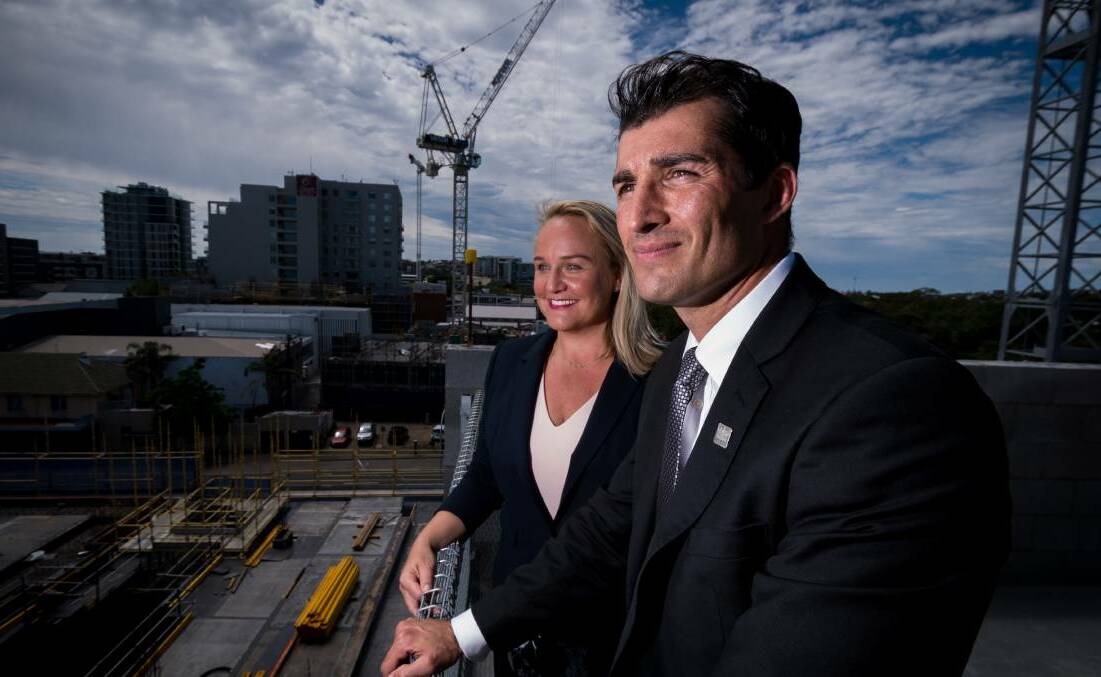
Independent councillor John Church has raised queries about the investigation, lodging questions to the council's executive manager legal and governance asking who will select the investigator, who will write the terms of reference, when the investigation will begin and if there is a deadline for completion.
Operating in shadows
Astroturfing practitioners typically operate from the shadows, in many cases disguising their true identities and motives.
Many, including some submissions provided under the name Scott Neylon, cloak their IP addresses using a VPN or proxy server.
This allows people to hide their tracks by shifting their online location markers across an array of different countries.
Although astroturfing is now usually associated with the internet, the practice has been widespread since newspapers introduced the letters page.
But embarrassment isn't the biggest issue facing those caught astroturfing.
Reputational damage can be far worse. To be caught submitting positive comments, or attacking critics, implies that the person or issue can't get the support for real.
Over the years several companies and people have been caught red-handed and red-faced.
Earlier this month, a University of Melbourne study found 26 per cent of submissions from individual e-cigarette users made to the Australian government's vaping reforms consultation featured text from an "astroturfing" campaign led by the tobacco and vaping industry.
Researchers found 370 submissions contained text from a template provided by a vaping industry-led organisation as part of an astroturfing campaign encouraging e-cigarette users to oppose reforms.
In June 2004, Victoria's most senior local government official, president of the Municipal Association of Victoria Brad Matheson, quit his post after claims he used false names in letters to his local paper and in submissions to the Victorian Electoral Commission.
The correspondence included letters to the editor criticising Cr Matheson's political opponents, and a submission to the electoral commission supporting his views on boundary reform.
Cr Matheson claimed at the time he had assisted an elderly couple type and email correspondence.
Despite extensive media attention, the couple was never located.
A Hobsons Bay Council investigation eventually cleared Cr Matheson of any wrongdoing on the ground that he had not breached existing council policies, despite acknowledging that he used council's computer resources "inappropriately".
Do you know more? Donna.page@newcastleherald.com.au







